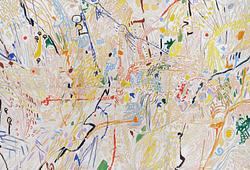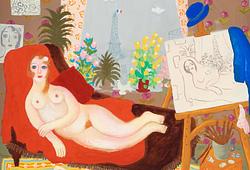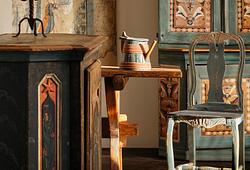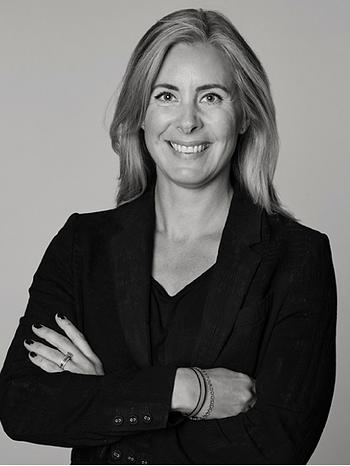Viktor Rosdahl
Viktor Rosdahl, signed and dated 2008 on verso. Blood on paper.
"Fors utan ende". 77 x 56 cm including frame.
Not examined out of frame.
Provenance
Galleri Arnstedt, Östra Karup
More information
Erik Viktor Rosdahl, born February 27, 1980 in Helsingborg, is a Swedish artist.
Viktor Rosdahl grew up in Elineberg in Helsingborg. He was educated at Birkagården's Folk College in Stockholm 1999-2001, at Örebro Art School 2001-02 and at the Academy of Art in Malmö 2002-07.
He received the Maria Bonnier Dahlin scholarship in 2009 and the Ragnar von Holten scholarship in 2014.
"Viktor Rosdahl's grandfather was a farmhand, his father was a welder and his own art contains the existential history of the working class. He allows himself to be inspired by political 60s lithographs, historical paintings and mass media images. His art raises moral questions about work, power and politics and how individual people's life paths are shaped by these factors.“ - Catrin Lundqvist
The art of Viktor Rosdahl comes to life in the interface between the power of imagination and reflective imaging. His perspective are that of the dreamer, the creating man, lacerated by the unforgiving and unforgivable world. This gaze, he shares with poets sucha as Dan Andersson, Lars Ahlin, or Erik Johansson whoes novel “The Factory Man” meant a deliverance when he read it during th early 2000:s. The book is a celebration to the imagination but also a terrible story about the factory’s means of dehumanize human beings. Rosdahls wrath and alienation towards the world receives its counterpoint in his images from the landscapes of dreams and this world. These Alps consists that which Walter Benjamin called aura. ”The concept of aura which was proposed above with reference to historical objects may usefully be illustrated with reference to the aura of natural ones. We define the aura of the latter as the unique phenomenon of a distance, however close it may be. If, while resting on a summer afternoon, you follow with your eyes a mountain range on the horizon or a branch which casts its shadow over you, you experience the aura of those mountains, of that branch.” Benjamin was a dreamer and a marxist. He did not see this as a contradiction but rather as an assumption to comprehend the horrors and fragility of life. In a letter to a good friend he pointerd out that he wrote with his left asweel as his right hand. Rosdahl has similar claims. The insights from the dream can be used in how we approach and look upon the world. Even the world can be changes. Even the most eager revolutionary must dream.







































